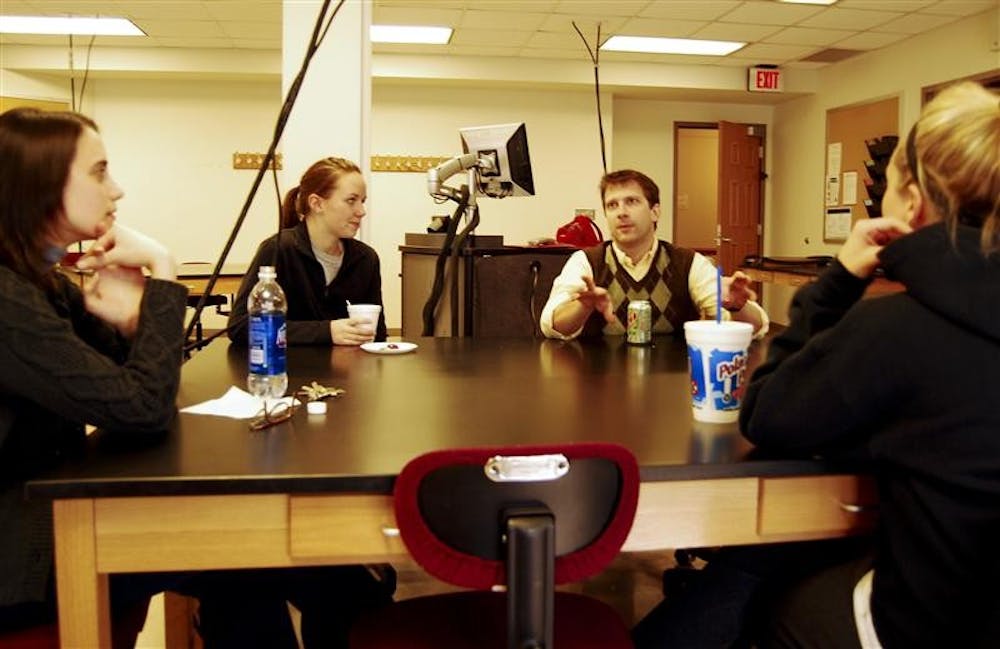At a university with more than 40,000 students, it is a goal of many to make it seem smaller.
The human biology program, an interdisciplinary program in the College of Arts and Sciences, is attempting this by presenting a weekly coffee hour for students and faculty from all majors to get together and talk about an array of topics.
“Coffee hour was something I implemented as a way of building community and giving students a time to get together and share experiences,” said Whitney Schlegel, director of the human biology program.
The program – and the coffee hour – was established two years ago to generate a system of interdisciplinary study for both students and faculty.
“Human biology is an interdisciplinary program where faculty teach from all over the University,” said Phillip Quirk, assistant director of the program. “The idea of the program is to bring students and faculty together to study what it is to be human.”
The coffee hour, which takes place from 2:30 to 3:30 p.m. Mondays in Morrison Hall 107 this semester, provides a more informal setting for people from all areas of study to connect.
Depending on people’s schedules, a handful of professors and about a dozen students attend to discuss everything from current events in biology to personal events.
Krista Bergman, a junior in the human biology program, said she regularly attends the coffee hour because it’s “nice to talk casually about things” with her professors.
“This year I go every week because I enjoy the personal connection that you gain from being able to talk to your professors outside of class and hang out with classmates,” she said.
Dena Kranzberg, a senior in the program, said attending the coffee hour gives her an opportunity to stay in touch with classmates and professors from her classes.
“I go to see people who were in my 100-, 200- and 300-level classes that I no longer get to see,” she said.
Quirk said the coffee hour is a way for students and faculty to interact on a more informal level, which is often less intimidating than using a professor’s office hours.
“We want to emphasize the accessibility of faculty,” he said. “It allows students to become more invested in the program and in their studies.”
Schlegel added that having a coffee hour is a chance for students to learn outside of the traditional class lecture or seminar.
“I firmly believe all learning is social,” she said. “It’s an opportunity to learn, but to do so in a more informal setting.”
Ultimately, the point of the human biology program, and in part, the weekly coffee hour, is to bring together as many perspectives as possible.
“You don’t have to be in human biology to come to coffee hour,” Schlegel said. “We want people to enjoy coming together with all these different interests. It’s an opportunity to share collective knowledge.”
Human Biology Program coffee hour meant to spark discussion

Get stories like this in your inbox
Subscribe





